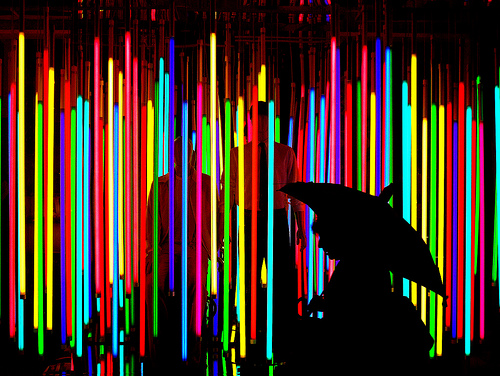Climate Change: What Broadcast Meteorologists Believe
This post contributed by Josh Blumenfeld, meteorologist, writer and editor
 When it comes to information about climate change, we want to believe that most people make rational, informed decisions based on a careful analysis of data. The truth for many people, though, is that their main source for climate change information is their local broadcast meteorologist. Unfortunately, this information often comes in the few seconds before or after a weathercast when a news anchor might ask the meteorologist if an unusually warm winter day is a “sure sign of global warming.”
When it comes to information about climate change, we want to believe that most people make rational, informed decisions based on a careful analysis of data. The truth for many people, though, is that their main source for climate change information is their local broadcast meteorologist. Unfortunately, this information often comes in the few seconds before or after a weathercast when a news anchor might ask the meteorologist if an unusually warm winter day is a “sure sign of global warming.”
As a broadcast meteorologist and a member of the both the American Meteorological Society (AMS) and the National Weather Association (NWA), I was invited to participate in the largest and most representative survey of broadcast meteorologists ever conducted regarding our views of global climate change and global warming—and how we can do a better job communicating this information to viewers.
The survey was conducted in 2009 by the Center for Climate Change Communication at George Mason University under a grant from the National Science Foundation. More than 1,400 broadcast meteorologists who were members of the AMS and/or the NWA were invited to participate in the online survey; questions covered views about both climate change in general and about global warming specifically. Preliminary results were released this past March.
About two-thirds of broadcast meteorologists who responded to the survey have an interest in reporting on climate change (66.4%), and nearly all address climate change as part of their duties (87%), usually through talks to community or school groups. In addition, most weathercasters believe the most appropriate place in which to address climate change is through community talks outside the newsroom (82%). The second most common area where broadcast meteorologists address climate change is during the few seconds of anchor banter going into or out of a weather segment (49%). Only slightly more than a third of weathercasters (37%) say they discuss climate change during their formal weathercast.
Less than a quarter of respondents (24%) indicated that they had observed evidence of climate change in their local weather patterns, while slightly more than a quarter (27.4%) are “unsure.”
When it comes to global warming, more than half of my colleagues (54%) believe it is happening, 25% believe it is not and 21% say they do not know. Almost one-third (31%) believe that global warming is caused by human activities, while almost two-thirds (63%) believe it is caused mainly through natural changes in the environment. Slightly more than a quarter of the respondents (26.1%) say they “strongly agree” or “agree” with statements by other broadcast meteorologists (such as John Coleman of KUSI-TV in San Diego) that “global warming is a scam.”
The coverage of global warming seems to be a sticking point among broadcast meteorologists. While a survey by the University of Illinois at Chicago in 2008 found that more than 96% of climatologists believe that global warming is real and that humans play a role, a majority of broadcast meteorologists in this survey (61%) believe there is disagreement among scientists as to whether or not global warming is occurring. Perhaps as a result, a large majority of survey respondents (79%) believe that coverage of climate change by the news media should reflect the same balance of viewpoints seen in political coverage, where both sides of an issue are allowed equal time to present their views. However, the survey authors note that prior research indicates that balanced coverage of climate change tends to give audience members “the false impression that there is a lot of disagreement among scientists about whether or not global warming is happening” (which, of course, reinforces the view that there is disagreement among scientists).
The authors suggest that climate scientists need to make their case directly to broadcast meteorologists “because these two groups appear to have a very different understanding about the scientific consensus on climate change.”
Based on my experience, I agree with this assessment and fully support the recommendation by the authors that greater resources should be available to broadcast meteorologists to help explain climate change. Resources, such as access to interviews with climate scientists and high-quality graphics and animations to summarize and explain climate dynamics, would help maximize the information we can present during our short weathercasts. This, in turn, may help us give the general public a greater appreciation and understanding of this, quite literally, Earth changing problem.
Josh Blumenfeld holds Master’s degrees in both land resources and journalism, along with a certificate in meteorology. His work as a broadcast meteorologist has earned television seals of approval from both the American Meteorological Society and the National Weather Association.
Photo Credit: an untrained eye